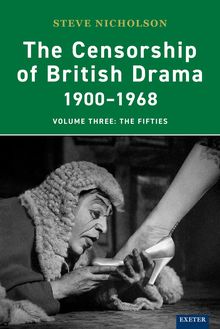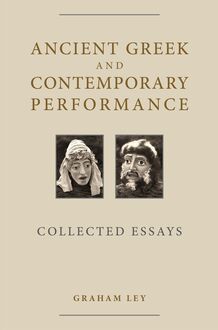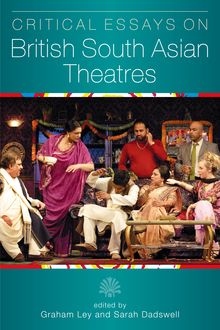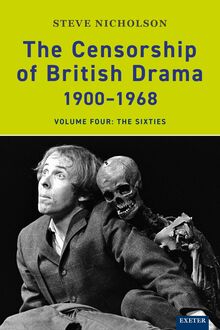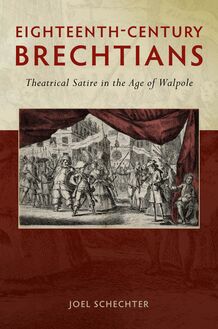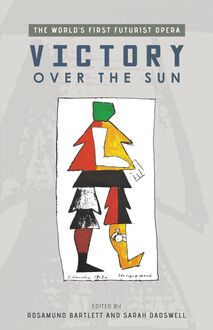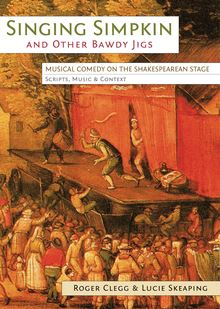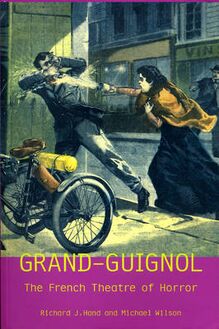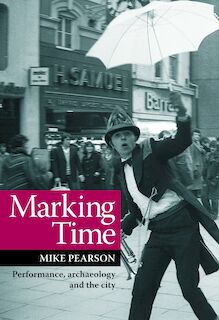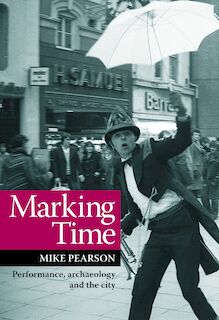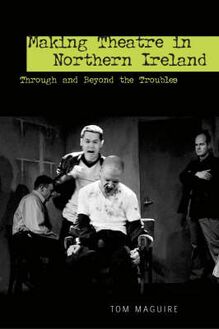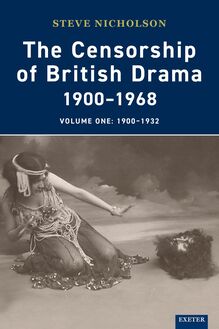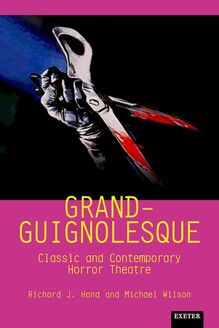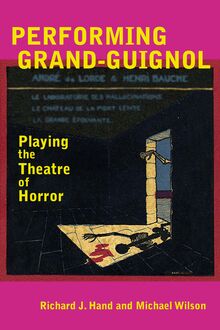-
 Univers
Univers
-
 Ebooks
Ebooks
-
 Livres audio
Livres audio
-
 Presse
Presse
-
 Podcasts
Podcasts
-
 BD
BD
-
 Documents
Documents
-
- Cours
- Révisions
- Ressources pédagogiques
- Sciences de l’éducation
- Manuels scolaires
- Langues
- Travaux de classe
- Annales de BEP
- Etudes supérieures
- Maternelle et primaire
- Fiches de lecture
- Orientation scolaire
- Méthodologie
- Corrigés de devoir
- Annales d’examens et concours
- Annales du bac
- Annales du brevet
- Rapports de stage
La lecture à portée de main
Vous pourrez modifier la taille du texte de cet ouvrage
Découvre YouScribe en t'inscrivant gratuitement
Je m'inscrisSinging Simpkin and other Bawdy Jigs , livre ebook
Découvre YouScribe en t'inscrivant gratuitement
Je m'inscrisEn savoir plus
Vous pourrez modifier la taille du texte de cet ouvrage
En savoir plus

Description
A popular crowd-pleaser in the late 16th and mid-17th century, the dramatic jig was a short, comic, bawdy musical-drama which included elements of dance, slapstick and disguise. With a cast of ageing cuckolds and young head-strong wives, knavish clowns, roaring soldiers and country bumpkins, jigs often followed as afterpieces at London’s playhouses, and were performed at fairs, in villages and in private houses. Troublesome to the authorities, they drew the crowds by offering a lively antidote to more sober theatrical fare.
This performance edition presents for the first time nine examples of English dramatic jigs from the late sixteenth century through to the Restoration; the scripts are re-united as far as possible with their original tunes. It gives a comprehensive history, discusses sources, plots, instrumentation and dancing, and offers practical information on staging jigs today.
Includes:
Transcriptions of the original texts
Contextual notes: plot synopses and discussion of sources, themes and audience reception
Musical notation for each tune, with suggestions for underlay and chords, and notes on instrumention and style
Appendix of dance instructions and reconstructions
List of illustrations
Preface
Acknowledgements
Abbreviations and referencing conventions
A history of the dramatic jig
The scripts and tunes:
Wooing of Nan
Rowland’s God Son
Singing Simpkin
Francis’ New Jig
The Black Man
The Jig of St. Denys’ Ghost
The Libel of Michael Steel
Fools Fortune
The Cheaters Cheated
Staging the jigs
Text
Music
Dance
Appendix: Dance instruction
Bibliography
Sujets
Musique
Histoire de la musique
Shakespeare
Printed Music
Literary Criticism
Theater
Idioma inglés
MUSIC
Inglaterra
Reino Unido
Comedy
Theatre
Multiple signal classification
Modern history
General officer
Elizabethan era
Restoration
United Kingdom
English
Le Don du roi
Great Britain
General
William Shakespeare
Drama
England
Performance
Anglais
Royaume-Uni
Informations
| Publié par | University of Exeter Press |
| Date de parution | 26 mars 2015 |
| Nombre de lectures | 0 |
| EAN13 | 9780859899840 |
| Langue | English |
Informations légales : prix de location à la page 0,2625€. Cette information est donnée uniquement à titre indicatif conformément à la législation en vigueur.
Extrait
Singing Simpkin and other Bawdy Jigs
The theatrical jig of the late sixteenth century through to the Restoration was a short, comic, bawdy musical-drama that included elements of dance, stage combat and disguise. With a cast of aging cuckolds, faithless wives, knavish clowns, roaring soldiers, coy maidens and country bumpkins, jigs regularly followed as afterpieces on London’s Tudor and Stuart stages, and were performed at fairs, in villages and in private houses. They were also toured by English players to the Continent where they took on a life of their own.
This performance edition presents for the first time nine examples of English dramatic jigs re-united as far as possible with their original tunes. It provides a substantial and comprehensive history of the jigs, discusses sources, plots, instrumentation and dancing, and offers practical information on staging jigs today.
If we are to come closer to an understanding of play-going in Shakespeare’s England, an encounter with the dramatic jig is essential. For the first time in four hundred years this book presents scholars and performers with the opportunity to stage the surviving texts, and to follow Shakespeare’s plays with Singing Simpkin or other bawdy jigs.
Roger Clegg is Senior Lecturer in Drama Studies at De Montfort University.
Lucie Skeaping presents ‘The Early Music Show’ on BBC Radio 3; she performs broadside ballads and jigs with her band The City Waites.
Both have run jig workshops for the RSC, Shakespeare’s Globe and with students of music and drama.
Exeter Performance Studies
Series editors . Peter Thomson, Professor of Drama at the University of Exeter; Graham Ley, Professor of Drama and Theory at the University of Exeter; Steve Nicholson, Professor of Twentieth-Century and Contemporary Theatre at the University of Sheffield.
From Mimesis to Interculturalism: Readings of Theatrical Theory Before and After Modernismm
Graham Ley (1999)
British Theatre and the Red Peril: The Portrayal of Communism 1917—1945
Steve Nicholson (1999)
On Actors and Acting
Peter Thomson (2000)
Grand-Guignol: The French Theatre of Horror
Richard J. Hand and Michael Wilson (2002)
The Censorship of British Drama 1900—1968: Volume One 1900—1932
Steve Nicholson (2003)
The Censorship of British Drama 1900—1968: Volume Two 1933—1952
Steve Nicholson (2005)
Freedom’s Pioneer: John McGrath’s Work in Theatre, Film and Television
edited by David Bradby and Susanna Capon (2005)
John McGrath: Plays for England
selected and introduced by Nadine Holdsworth (2005)
Theatre Workshop: Joan Littlewood and the Making of Modern British Theatre
Robert Leach (2006)
Making Theatre in Northern Ireland: Through and Beyond the Troubles
Tom Maguire (2006)
“In Comes I”: Performance, Memory and Landscape
Mike Pearson (2006)
London’s Grand Guignol and the Theatre of Horror
Richard J. Hand and Michael Wilson (2007)
Theatres of the Troubles: Theatre, Resistance and Liberation in Ireland
Bill McDonnell (2008)
The Censorship of British Drama, 1900—1968: Volume Three, The Fifties
Steve Nicholson (2011)
British South Asian Theatres: A Documented History
edited by Graham Ley and Sarah Dadswell (2011)
Victory over the Sun: The World’s First Futurist Opera
edited by Rosamund Bartlett and Sarah Dadswell (2012)
Critical Essays on British South Asian Theatre
edited by Graham Ley and Sarah Dadswell (2012)
Marking Time: Performance, archaeology and the city
Mike Pearson (2013)
Singing Simpkin and other Bawdy Jigs
Musical Comedy on the Shakespearean Stage:
Scripts, Music and Context
Roger Clegg and Lucie Skeaping
with an appendix of dance instruction by Anne Daye
UNIVERSITY of EXETER PRESS
Cover illustration: David Vinckboons (1576—ca. 1632), Grand kermess , workshop, oil on oak panel, 120 × 168 cm, The National Museum Szczecin, Foto: G. Solecki (detail)
First published in 2014 by University of Exeter Press Reed Hall, Streatham Drive Exeter EX4 4QR UK
www.exeterpress.co.uk
© Roger Clegg and Lucie Skeaping 2014
The right of Roger Clegg and Lucie Skeaping to be identified as authors of this work has been asserted by them in accordance with the Copyright, Designs and Patents Act 1988.
British Library Cataloguing in Publication Data
A catalogue record for this book is available from the British Library.
ISBN 978 0 85989 878 2
Typeset in Adobe Garamond by Carnegie Book Production, Lancaster Printed in Great Britain by 4edge UK
Contents
List of illustrations
Acknowledgments
Preface
Abbreviations and referencing conventions
A history of the dramatic jig
The scripts and tunes
Wooing of Nan
Rowland’s God Son
Singing Simpkin
Francis’ New Jig
The Black Man
The Jig of St. Denys’ Ghost
The Libel of Michael Steel
Fools Fortune
The Cheaters Cheated
Staging the jigs
Text
Music
Dance
Appendix: Dance instruction
Bibliography
Contributors
For Richard and Stuart, and Peter.
And for William who heard these tunes in his cradle and still loves them.
Illustrations
1. A drawing of Richard Tarlton
2. Title page of Kemp’s Nine Daise Wonder (1600)
3. MS Wooing of Nan
4. First page, MS Rowland’s God Son
5. First page, Singing Simpkin in Robert Cox’s Actaeon and Diana (1655/6)
6. Frontispiece and title page, The Wits, or Sport Upon Sport , Part I (1662)
7. Broadside (detail) ‘Frauncis new Jigge, betweene Frauncis a gentleman, and Richard a Farmer’ (1617?)
8. Music notation for ‘Walsingham’ in the Shirburn Ballads MS (c.1600—3?)
9. First page, The Black Man in Wits, or Sport upon Sport Part II (1673)
10. ‘The Church Stile Inn, St. Peter Mancroft, Norwich’ by Henry Ninham (1796-1874)
11. MS The Jig of St Denys’ Ghost
12. MS The Libel of Michael Steel (c.1601-2)
13. MS (detail) Fools Fortune (1621)
14. First page, The Cheaters Cheated in Thomas Jordan’s A Royal Arbor of Loyal Poesie (1663)
Acknowledgements
A number of people have been invaluable in developing this edition. In particular, our thanks go to Peter Thomson for his considerable and continued support and help with editing the work and to Anna Henderson from the University of Exeter Press and Rachel Clarke from Carnegie Publishing for guiding us through each stage of the publication process.
We are grateful to the Society for Theatre Research for their support in awarding us the Stephen Joseph award (2010) and a grant (2012) towards the costs of research and publication. We are also grateful to the Dolmetsch Historical Dance Society (DHDS) for awarding us a grant towards the cost of publication, and to De Montfort University’s School of Arts for granting funding and research leave to complete the book.
We would also like to thank the following for their help and advice: Robin Adams for proofreading; Jon Banks for music typesetting; Jeremy Barlow for reading through the typescripts, taking numerous phone calls and generously lending books and 3-hole pipes; Patricia Fumerton and Eric Nebeker of the English Broadside Ballad Archive (EBBA), University of California, Santa Barbara; Christopher Goodwin of the Lute Society; Tony Green for his vitally provocative response to an early draft and his generosity in sharing his research; Arnold Hunt, Curator of Historical Manuscripts, British Library; Gracie Loppolo, Reading University, and her husband, Peter Beal; Richard Luckett, Pepys Librarian, Magdalene College, Cambridge; Calista Lucy, Keeper of the Archives, Dulwich College; Christopher Marsh; Derek McCulloch for help with translation; Dorothee Sturkenboom from Utrecht University; Malcolm Taylor at the English Folk Dance and Song Society; and Peter West for his work on translating the continental variants and offering his thoughts on the texts. Thanks must also go to the members of the City Waites, and Roddy Skeaping in particular, for contributing musical ideas; and to the undergraduate students of Drama (the classes of 2002 and 2004) at the University of Exeter for their energy, enthusiasm and good humour in helping to stage jigs.
Preface
Visit the open playhouses of London at the end of the sixteenth century to see a play by Shakespeare or his contemporaries and the chances are that following it you would witness a number of performers enter to present what we might call a ‘dramatic jig’. A short sung-drama featuring a cast of comic types, the jig played out well-worn stories of misplaced courtship, sexual misdemeanour and social conflict; they were sung to popular tunes of the day, were often bawdy and sometimes featured dance, stage fighting and disguising. Such musical entertainments featured regularly as an afterpiece to the plays on London’s professional stage well into the seventeenth century, and were written and performed by amateur and semi-professional actors in communities in the localities. They also featured as part of the repertoire of English actors who toured to the Continent. But, by the end of the century, allusions to the jig were increasingly with reference to a bygone era in English drama. This performance edition presents for the first time nine examples of English dramatic jigs from the late sixteenth century through to the Restoration.
Not until the early nineteenth century does the dramatic jig reappear in histories and commentaries on the Tudor and Stuart stage, when scholars and antiquaries become interested in documenting the genre. While passing reference has been made in most works of English theatre history since 1800 it is not until 1929 that they were given seminal treatment by the American scholar Charles R. Baskervill, in his monograph The Elizabethan Jig . While he and others—W.R. Chetwood (A Select Collection of Old Plays , 1750), J.P. Collier (Alleyn Papers , 1843; and Illustrations of Old English Literature , III, 1866), F.W. Fairholt (Lord Mayors’ Pageants , 1843), G.F. Warner (Catalogue of MSS and Muniments , 1881), A. Clark (The Shirburn Ballads , 1907), H.E. Rollins (Pepysian Garland , 1922), J
-
 Univers
Univers
-
 Ebooks
Ebooks
-
 Livres audio
Livres audio
-
 Presse
Presse
-
 Podcasts
Podcasts
-
 BD
BD
-
 Documents
Documents
-
Jeunesse
-
Littérature
-
Ressources professionnelles
-
Santé et bien-être
-
Savoirs
-
Education
-
Loisirs et hobbies
-
Art, musique et cinéma
-
Actualité et débat de société
-
Jeunesse
-
Littérature
-
Ressources professionnelles
-
Santé et bien-être
-
Savoirs
-
Education
-
Loisirs et hobbies
-
Art, musique et cinéma
-
Actualité et débat de société
-
Actualités
-
Lifestyle
-
Presse jeunesse
-
Presse professionnelle
-
Pratique
-
Presse sportive
-
Presse internationale
-
Culture & Médias
-
Action et Aventures
-
Science-fiction et Fantasy
-
Société
-
Jeunesse
-
Littérature
-
Ressources professionnelles
-
Santé et bien-être
-
Savoirs
-
Education
-
Loisirs et hobbies
-
Art, musique et cinéma
-
Actualité et débat de société
- Cours
- Révisions
- Ressources pédagogiques
- Sciences de l’éducation
- Manuels scolaires
- Langues
- Travaux de classe
- Annales de BEP
- Etudes supérieures
- Maternelle et primaire
- Fiches de lecture
- Orientation scolaire
- Méthodologie
- Corrigés de devoir
- Annales d’examens et concours
- Annales du bac
- Annales du brevet
- Rapports de stage
